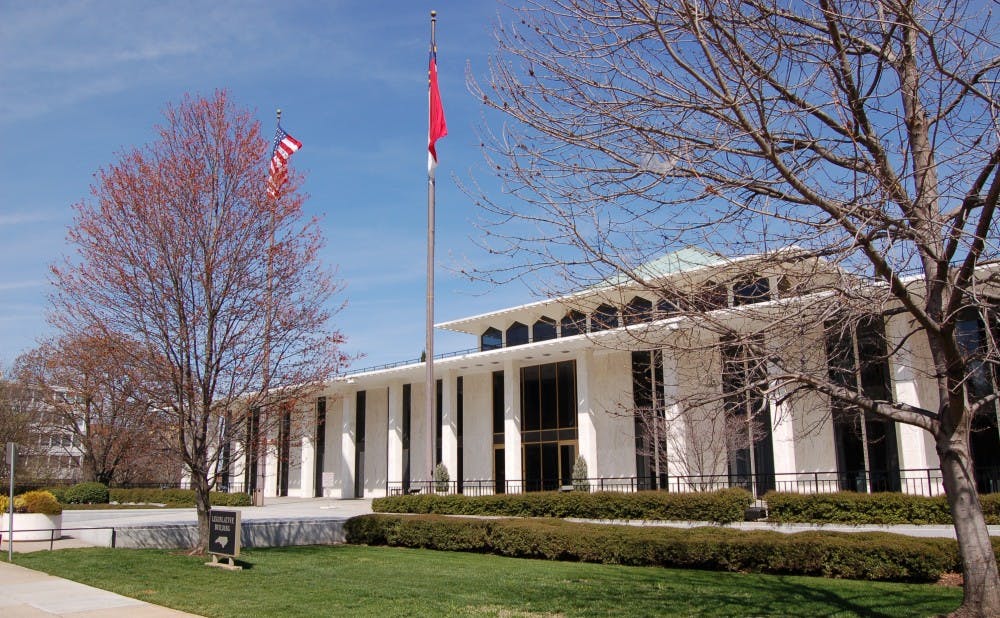Rural counties just may be key to the future of state politics in North Carolina.
Mac McCorkle, Law School ‘84 and professor in the Sanford School of Public Policy, and Rachel Salzberg, MPP ‘20, have published two related articles putting forth a new interpretation of North Carolina statewide electoral politics.
By analyzing North Carolina’s votes during the 2020 presidential election, they found that former President Donald Trump’s last two victories in the state relied heavily on 28 counties that they describe as “countrypolitan.” Out of the 28 counties, Trump won 25 and gained more votes there than in the remaining 50 counties put together.
These countrypolitan counties are the outlying counties across North Carolina that are in the same Metropolitan Statistical Areas as counties with larger cities. According to the federal Office of Management and Budget, these counties are deemed as metropolitan areas due to their economic ties with their neighboring big-city counties, but tend to “retain significant rural and/or small-town legacies,” McCorkle and Salzberg’s articles.
“We [make the distinction] at around 83,000 [people] or so—almost every city that is at that size or larger is a Democratic stronghold,” McCorkle said. Countrypolitan counties, however, are “on the fringe: they’re not in the county where the big city is.”
Durham-Chapel Hill is considered its own metropolitan area, with counties such as Granville, Person and Chatham being associated countrypolitan counties. In the Raleigh MSA, Franklin and Johnston would be such counties. In the Charlotte MSA, Union County would be an example.
“Politically speaking, the strongest demographic and common characteristic [of countrypolitan counties] is their whiteness,” McCorkle said. “They are more white than rural and small town North Carolina because there’s still a significant Black and minority vote in these non-metropolitan areas.”
Almost all countrypolitan counties were heavily red in 2020. In these counties combined, Trump beat President Joe Biden by 27 points, amassing 934,667 voters. The countrypolitan strength neutralized and sometimes even outweighed Biden’s leads in major metro areas.
For example, Biden won Mecklenburg County, where Charlotte is located, by 35 points due to his advantage in the city. However, in the entire Charlotte metro, Biden only won by 3.6 points.
According to McCorkle and Salzberg’s articles, the key to Democratic success in North Carolina statewide elections is to “lose less” in the more strongly red countrypolitan counties. There are many blue outposts or blue pockets within these red counties that could help Democrats to do so.
For instance, in 2020, the city of Monroe had a Democratic mayor and a majority-Democratic and Independent city council, yet it is located within red, countrypolitan Union County. Areas with similar situations include Gastonia, Hendersonville and Roxboro counties, and the towns of Reidsville, Burlington, Morganton, New Bern, Goldsboro, Sanford, Beaufort and Albemarle.
According to McCorkle, candidates need to spend more focus on turnout in these areas.
“It’s very understandable to say, ‘Well, I’m not going to spend any resources in Union County, that’s totally Republican,’” McCorkle said. “It can’t just be, ‘Oh, let’s go get some more votes come election time.’ Democrats need to build political cultures of support for these candidates and get more of them to run.”
However, McCorkle thinks his research can be integrated in the electoral strategy of Republicans as well, since they know countrypolitan counties are their areas of strength. He said their secret weapon may be the “emerging Latino vote” or the “minority vote that is not Black,” which they will have to utilize in order to maintain their hold on the state.
“Republicans are also aware of the changing demography,” McCorkle said. “If countrypolitan counties become like Cabarrus, with Trump only winning by 10%, [North Carolina] is a Democratic state in a good year and in a neutral year.”
McCorkle stressed that his research is not applicable to the upcoming midterms.
“It does underline how Democrats have been sitting ducks for the Republican gerrymandering,” McCorkle said. “The Democratic vote is way too concentrated.”
However, this could change. The North Carolina Supreme Court ruled on Feb. 7 that the proposed congressional maps were unconstitutional and new maps must be drawn to lessen gerrymandering.
Get The Chronicle straight to your inbox
Sign up for our weekly newsletter. Cancel at any time.

Jazper Lu is a Trinity senior and centennial/elections editor for The Chronicle's 120th volume. He was previously managing editor for Volume 119.

